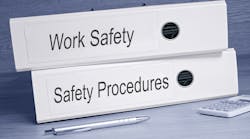OSAP is a good resource for dental assistants taking on infection control
By Michelle Lee
For the first time since the 1980s, infection prevention processes are changing. While adjusting to our new normal and living life during a pandemic, there is one thing for sure—the dental profession proudly continues its commitment to delivering safe dental care.
In 2016, the Centers for Disease Control and Prevention Division of Oral Health, in its Summary of Infection Prevention Practice in Dental Settings: Basic Expectations for Safe Care, recommended that every dental practice have a designated infection control coordinator (ICC). The ICC is responsible for staying up to date on infection control and prevention best practices. Specific roles include, but are not limited to, the following:
- Maintain relevant regulatory and guidance documents and make sure these are available to all personnel (e.g., bloodborne pathogens standard and personal protective equipment)
- Maintain current related permits, licenses, and other documents (e.g., training, sterilization, logs, and medical and other records)
- Generate/update/maintain logs of additional safety-related records (e.g., manifests from medical waste haulers, radiographic equipment certifications)
- Act as a resource on infection control and prevention for the team or organization
- Provide infection control and OSHA-mandated training and education
- Monitor compliance by observation, sterilization logs, checklists, and other methods
- Confirm employee immunizations are current, and supplies and equipment ordering systems are in place
If your practice does not have someone in this role, there is no better time than now for you, as a dental assistant, to step up.
The Organization for Safety, Asepsis, and Prevention (OSAP), founded in 1984, is positioned to be your resource and partner in this role. OSAP is a non-profit dental membership association that includes clinicians, educators, researchers, and industry representatives who advocate for safe and infection-free oral health-care delivery.
OSAP’s nationally and internationally recognized subject matter experts (SMEs) are known for their ability to take complex recommendations and regulations and create comprehensive and plain language materials to help dental health-care providers understand how to apply concepts to daily practice. OSAP membership provides access to a website of extensive resources and toolkits addressing relevant issues as they emerge. OSAP’s Safest Dental Visit toolkit provides an ICC job description and links to many of the resources needed to execute the position successfully.
How do you determine if you are right for this role? Ask yourself the following questions:
- Do I have an interest in infection control?
- Am I detailed?
- Am I willing to learn?
It’s that simple. Most people in this role have a passion for it. If you ever find yourself frustrated while reading social media posts that ask the question “paper up” or “paper down” (if you do not know the correct answer, read the instructions for use), you are probably the unofficial ICC in your office!
In addition to the online toolkits, OSAP offers two significant educational events each year. The OSAP annual conference typically occurs in late spring or early summer. Due to the pandemic, the event has been rescheduled to August 13-15 and is now virtual. Every year, this conference covers emerging and salient topics in dental infection prevention, occupational health, and patient safety. To reflect the current state of dentistry, OSAP has updated the agenda to provide multiple COVID-19-specific sessions to help provide clarity and guidance through this unprecedented time. Take a moment to view the newly updated agenda for this year’s conference.
The second event, OSAP’s Dental Infection Control Boot Camp, is a three-day fast-paced, foundational level course presented by national and international experts in dental infection prevention and patient safety. The course curriculum is based on federal standards, regulations, and evidence-based guidelines. While these tell you what to do, they will not tell you how to implement the steps. This course will help you understand proper infection prevention and control practices for your work setting. The content is consistent year after year with minor updates based on new regulations or guidelines. Participants should plan to attend this course every three to four years as a refresher. It includes plenary sessions, breakout sessions, and an exhibitor/vendor fair. Each participant receives a copy of the OSHA & CDC Guidelines: OSAP Interact Training System–6th Edition workbook.
As a dental assistant, you have chosen an amazing career. OSAP is here to support you in your journey. I encourage you to contact OSAP with your dental infection control questions.
Michelle Lee began her tenure as executive director of the Organization of Safety, Asepsis, and Prevention (OSAP) in 2018. She has more than 30 years of experience in the dental and health-care industries, leading organizations and corporations with real-world business acumen. Her experience includes leading the Southeast’s largest dental and medical staffing firm, as well as consulting with dental practices to share her dental and business knowledge.






